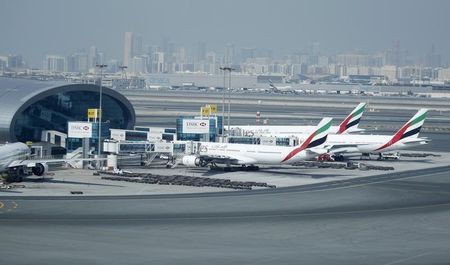BERLIN (Reuters) - The head of Emirates Airlines, one of the world's largest carriers, said there was no need to improve modern aircraft tracking systems even after a commercial jet disappeared earlier this year, according to Spiegel magazine.
The disappearance of Malaysian Airlines (KL:MASM) flight MH370 on a Boeing (N:BA) 777 jet in March has led to calls for real-time tracking of aircraft, and an airline-industry-led task force is looking at ways of improving tracking.
Tim Clark, president of Emirates Airline [EMIRA.UL], told the German online magazine that modern planes already had the necessary equipment but measures should be taken to ensure pilots can't turn off tracking devices.
"The Boeing 777 is already one of the most advanced planes in the world, with the most modern communications systems," Clark was quoted as saying in an interview published on Thursday.
He said it was already difficult to turn off current tracking systems such as transponders and the ACARS system, which some suspect may have occurred in the case with MH370, but that plane manufacturers should work to make them impossible to switch off.
"We have to ensure that ACARS runs continuously. If that happens, then we can monitor planes over the seas, and then we wouldn't need extra tracking systems."
The task force looking at plane tracking, due to give recommendations in September, said draft proposals would be delayed, possibly until December.
International search efforts have centred around the plane's suspected crash site in a remote part of the Indian Ocean, identified via vague satellite signals, have so far failed to find any trace of the plane. Clark said this was unusual.
"Experience shows that when a plane crashes into water, you can always find something. But in this instance, we haven't found a single scrap of evidence that the plane is there. Just the satellite handshakes, and even those I have my doubts about," he said.
A report published by the Australian Transport Safety Bureau on Wednesday suggested that the underwater search should be prioritised further south within the wide search area it had previously identified.
Clark said Malaysia Airlines faced an uphill struggle in restoring its fortunes after the twin tragedies of MH370 and MH17, which was shot down over eastern Ukraine in June.

"As an industry we have to help the company get back on its feet. But with such a damaged brand, it will be incredibly tough."
(Reporting by Victoria Bryan; editing by Jane Baird)
2_800x533_L_1412520354.jpg)